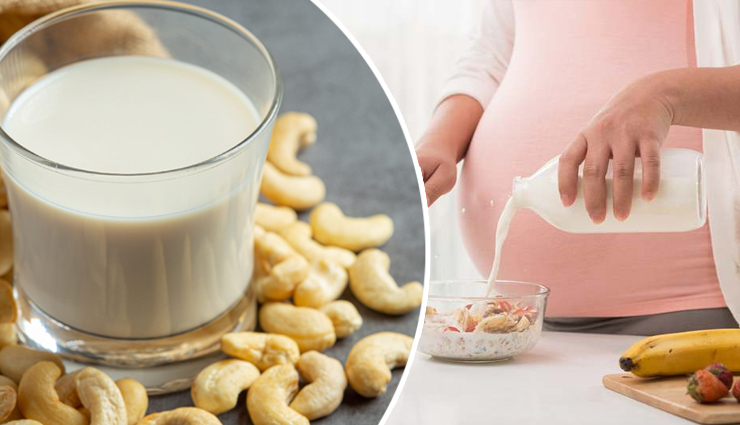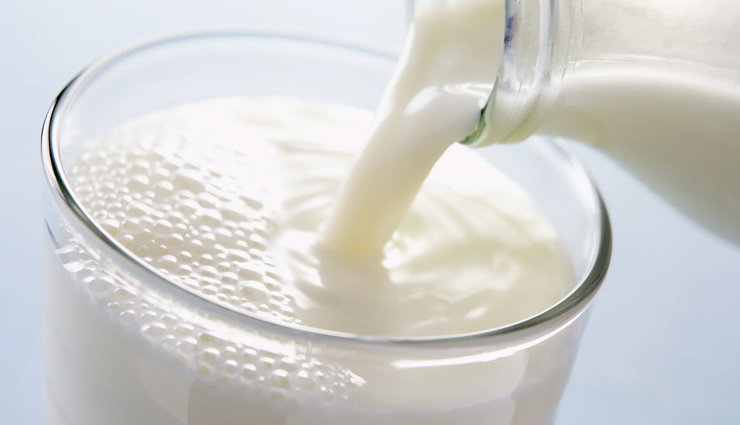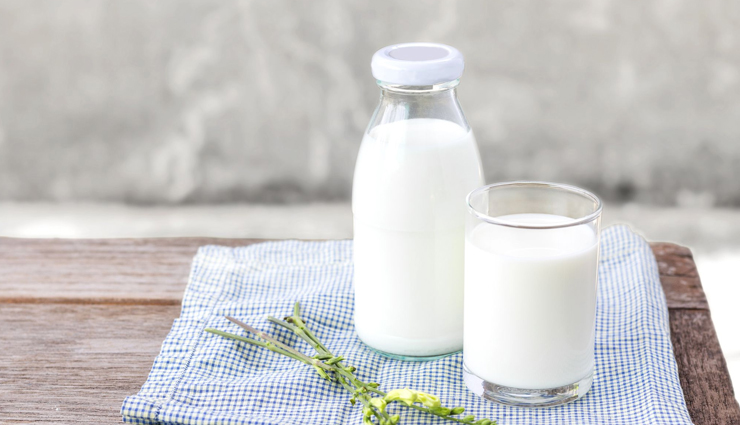- Home›
- Healthy Living›
- Reasons Why You Should Consume Cashew Milk During Pregnancy
Reasons Why You Should Consume Cashew Milk During Pregnancy
By: Kratika Maheshwari Fri, 02 Sept 2022 08:53:17

Pregnancy milks are the ones that are specially made so that their nutritional content is in accordance with the needs of pregnant women and the fetus in their wombs. This milk, like benefits of macadamia milk, is very good for maintaining the health of pregnant women and supporting fetal growth and development.
Many pregnant women experience morning sickness so they don’t have an appetite as good as they had before. This could lead to a less nutrition intake, which means their health would be at risk.
Pregnant women need a variety of nutrients, including vitamins and minerals, in greater amounts than before pregnancy. Therefore, in order not to lack essential nutrients, pregnant women are encouraged to drink milk that are specially made for them, especially if they have difficulty eating something nutritious.
As has been said before, pregnant mother’s milk provides benefits not only for pregnant women themselves, but also for the fetus in their womb.
The body of pregnant women undergoes many changes that increase the need for certain nutrients. For example, the need for calcium during pregnancy increases to 2 times when compared to when they’re not pregnant.

# Becomes Main Source of Protein
Just like benefits of mung beans milk, cashew milk is a good source of omega 3 and 6 fatty acids for pregnant women. This is a type of good fat that can maintain the health of the blood vessels of the mother and fetus, and optimize the development of the fetal brain.
In addition, a handful of cashews also provides a much needed protein for pregnant women and the fetus to build new cells and replace old damaged cells. The omega 3 and 6 fatty acids in cashews will be well preserved if they are properly processed, for example roasting.
Avoid frying cashews because the good content will be replaced by the bad fat composition from the oil.
# Pleasing Way to Get Iron
When pregnant, women are very at risk of developing anemia due to iron deficiency. This is because all iron reserves in the body are used up to form hemoglobin that plays a role in circulating oxygen to the cells of the body of the mother and fetus.
If it is not balanced with adequate iron intake, oxygen intake to the fetus will be disrupted. Well, cashew milk is one of the foods that can answer the iron needs of pregnant women.

# Reduces Allergy Risk
Research in 2015 states that consumption of nuts, milk, and wheat during pregnancy can reduce the risk of allergies and asthma in the fetus. One of the types of nuts in question is cashews.
If parents have a talent for allergies and want to reduce the risk to their baby, there is nothing wrong for pregnant women to regularly eat cashews since pregnancy. They can either eat the cashews as a snack or drink the cashew milk for easier digestion.
# Provides A Good Amount of Antioxidants
Apart from
protein, fatty acids, and iron, cashews are also rich in antioxidants
that can ward off free radicals. Not only dangerous for the health of
the mother, free radicals can also threaten the growth and development
of the fetus.
Some of the conditions that can occur due to free
radicals are preeclampsia and eclampsia, which are really dangerous and
pretty alarming. This is a condition where high blood pressure in
pregnant women can cause seizures can be a threat to the life of the
mother and the fetus. However, you may find the same benefit in the
other natural milks as well, like benefits of soy milk.

# A Good Source of Vitamin K & Copper
One ounce of cashews contains 9.8 mcg (micrograms) of vitamin K. Pregnant women need 90 mcg of this important vitamin every day to ensure that she does not suffer from excessive bleeding in pregnancy or later in childbirth.
The development of blood cells in the fetus can also be accelerated if cashews (a good source of copper) are consumed sufficiently during pregnancy. One ounce of cashews contains 0.6 mg of copper and can help meet the needs of pregnant women who need only a gram of it per day.





